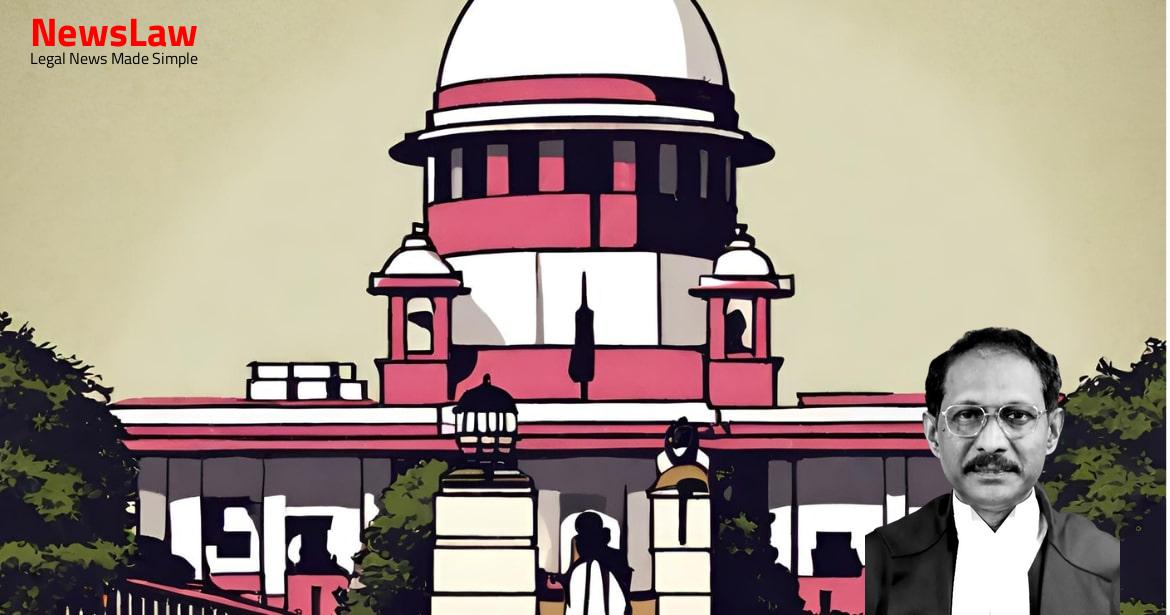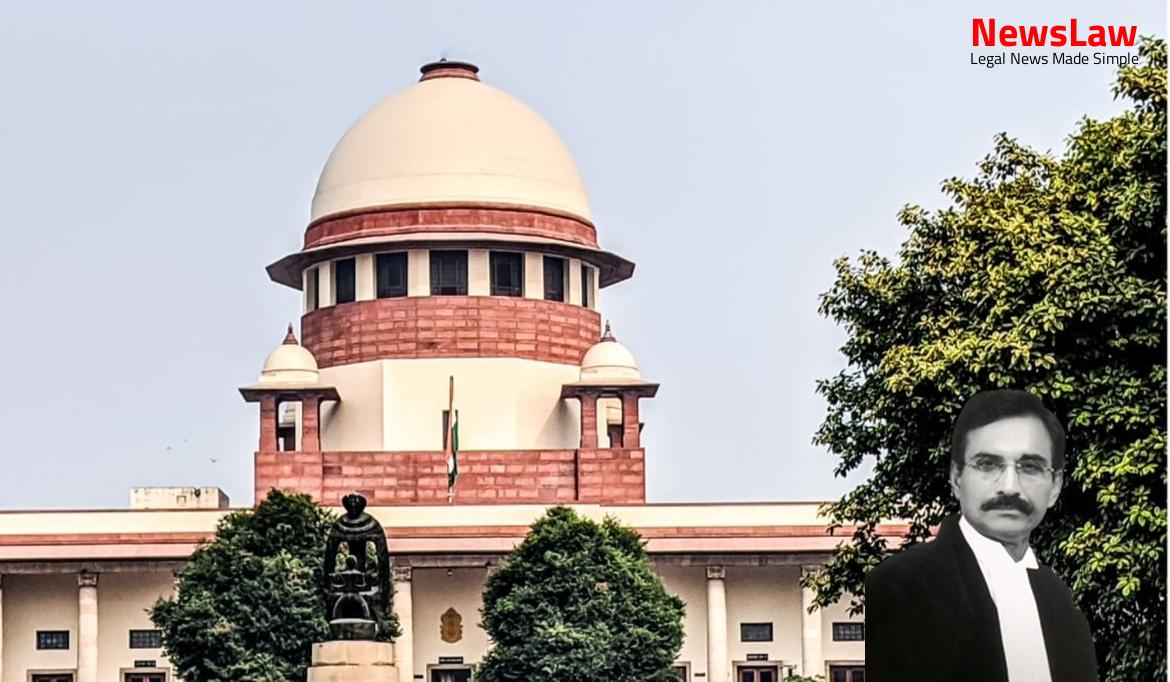Explore the depth of legal analysis in a recent case involving a tripartite agreement and liability under the Consumer Protection Act. The court’s scrutiny of contractual obligations and definitions under the Act provides insights into how legal principles are applied in complex scenarios. Discover the nuances of liability determination and the impact of legal interpretation on judicial decisions.
Facts
- The appellant is a party in a tripartite agreement
- The agreement is styled as a collaboration agreement
- This collaboration agreement involves multiple parties
Also Read: Legal Analysis of Interchange Fee Taxation Dispute
Arguments
- The learned counsel argues that the second Opposite Party should be deleted from the array of parties and should not be held liable.
- It is noted that the Apartment Buyers’ Agreement, a Tripartite Agreement, is signed by the first Opposite Party, the second Opposite Party, and the Complainant.
- The learned counsel for the second Opposite Party asserts that they are only the landowner and have assigned rights to sell, transfer, and receive payments to the first Opposite Party.
- Based on these arguments, the second Opposite Party claims they cannot be held responsible for refunding any amounts received.
- Developer has gone into a state of insolvency, proceedings under IBC initiated
- Home buyers who obtained relief are still affected
- Management of developer and land owner carried out by same group
- Opportunity for home buyers available as per NCLAT order
- Case for lifting of corporate veil raised by complainant’s counsel
- IRP appointed, NCLAT order passed in appeal against IBC order
Also Read: Analysis of Burden of Proof in Wrongful Termination Cases
Analysis
- The NCDRC found the appellant liable based on clause 4.1 and the confirming party status.
- The NCDRC directed the developer and appellant to refund the complainants’ amounts with interest.
- The NCDRC did not adequately consider the collaboration agreement and tripartite agreement.
- The obligations of the developer and appellant were not properly appreciated under the Act.
- The NCDRC’s finding that the appellant was jointly liable was based on incomplete analysis.
- The definition of ‘service’ under the Act was discussed in relation to the case.
- The NCDRC did not correctly interpret the nature of obligations required to establish liability.
- The summary highlighted discrepancies in the NCDRC’s understanding of the agreements involved.
- The appellant’s role as a confirming party and land owner was reiterated in the analysis.
- The appellant’s reply to the complaint and the lack of privity between the parties were emphasized.
- The NCDRC’s reliance on clause 4.1 to hold the appellant liable was critiqued for lack of thorough examination.
- The essence of obligations under the collaboration and tripartite agreements was not properly examined.
- The Consumer Protection Act defines the term ‘consumer’ in detail, including who is considered a consumer and what activities are included within the definition.
- A ‘consumer dispute’ is defined as a situation where the person against whom a complaint is made denies or disputes the allegations in the complaint.
- The definition of ‘deficiency’ in the Act is broad, encompassing faults, imperfections, shortcomings, or inadequacies in quality, nature, or performance that are required by law or under a contract.
- The Act allows consumers to file complaints alleging unfair trade practices, defects in goods, deficiencies in services, overcharging, and hazardous goods or services.
- The Act empowers consumers to seek relief by moving a complaint, which will be considered by the designated body under the Act.
- The word ‘deficiency’ in the Act covers any kind of fault or inadequacy in performance, whether required by law or under a contract, providing clarity on the scope of deficiencies that can be addressed.
- Lack of pleadings to support the case for employing the doctrine of lifting of the corporate veil
- Opportunity given to respondents to seek amendment of pleadings
- Appellant allowed to raise contentions against the amended pleadings and jurisdiction of NCDRC
- Order of NCDRC found insupportable based on current findings
- Developer claimed to be mere agent of the appellant
- Appeals allowed and the matter remanded back for further proceedings
- Beneficial nature of the Act should lean in favor of the consumer
- Respondents given opportunity to seek amendment of pleadings and provide supporting material
Also Read: Legal Analysis: Exam Answer Key Discrepancy
Decision
- The Developer is required to obtain all necessary approvals, including Sanctioned Building Plans and NOCs, to develop the Project in compliance with Applicable Laws.
- The Developer shall bear the costs and expenses for obtaining approvals and for the development of the Project.
- The Land Owner must obtain the necessary licenses from the DTCP for the Project.
- The entire marketing and sale of the Project will be handled by the Developer.
- Claims and demands related to the Project shall be the responsibility of the Developer, and not the Land Owner.
Case Title: M/S JANPRIYA BUILDESTATE PVT. LTD. Vs. AMIT SONI (2021 INSC 831)
Case Number: C.A. No.-001065 / 2021



